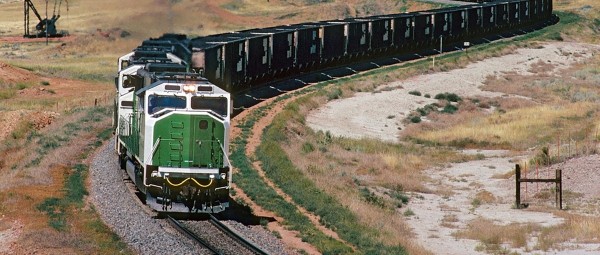Transforming the railcar of yesterday
The European rail system is currently at a crossroads. The EU has set itself the goal of cutting greenhouse gas emissions by 40 per cent by 2030 and reaching net zero by 2050. While there are many ways to achieve this, one of them is to use more rail transport to move people and goods around Europe. This means there will be a massive increase in demand for transport over Europe’s railways. However, to achieve this, the current railway system must be improved first. This is where Schaeffler comes in. With its expertise in strategic innovation, Schaeffler can help improve the railways themselves and the vehicles that travel on them.
For this growth target to be achieved, existing trains must become more efficient and new trains must be introduced into service as soon as possible. Schaeffler’s products are responsible for energy savings within the rail industry: its high-performance bearings have been optimised for low rolling resistance since 2011, its air springs reduce vibrations while maintaining comfort, and its systems reduce fuel consumption thanks to optimal aerodynamics and lightweight construction materials such as Carbon fibre or aluminium alloys.

Schaeffler plays a key role in rail cargo hauling by providing solutions such as rail freight wagons with optimised axle boxes, as well as having developed solutions for freight wagons and freight locomotives, which are designed for high-performance and low-maintenance operations. The company is also continuing to develop advanced technology for railway applications, including solutions for integrated vehicle control, digital warehouse management and safety systems for rail freight transport. Additionally, Schaeffler is looking to improve the competitive edge of the railway sector with respect to other modes of transportation.

In countries such as China, Australia, and the United States, rail accounts for 40 or 50 per cent of cargo transportation, however, in the European mix it doesn’t even account for 20 per cent. Europe can increase rail cargo transportation by capturing new European customers that produce batteries for electric vehicles, better connecting the Betuwe Route with the German rail network and implementing measures to increase rail freight volumes. Additionally, Europe can focus on medium to long distance journeys with a maximum speed under 250 kph and suburban train journeys to increase rail cargo transportation.
Moreover, Schaeffler has taken several steps to increase European rail cargo transportation. The company has in-vested heavily in digitalisation to optimise the entire supply chain, allowing for more efficient and cost-effective transportation of goods. Furthermore, Schaeffler has partnered with other European governments and the European Commission to create efficient international rail freight links, such as the Betuwe Route between Zevenaar and Oberhausen. Schaeffler also won the Railsponsible Supplier Award 2021, recognising the company’s commitment to sustainability and its efforts to reduce the transport sector’s CO2 emissions.
As we advance into the future, the mobility technology company, is focusing on looking at hydrogen to reduce emissions from locomotive engines. Regarding hydrogen, Schaeffler has been focusing on developing and testing new technologies for more than ten years. The company recently tested its latest hydrogen engine technology on a freight train from Berlin to Munich. The new technology is called a fuel cell drivetrain, which uses hydrogen gas instead of diesel fuel. Unlike diesel engines, which produce toxic pollution that can be harmful to humans and ani-mals when released into the environment, hydrogen fuel cell technology makes only water vapour. This means that the technology could be used in cities where there are no emissions restrictions on diesel engines.

Schaeffler is leading the way in transforming the railcar of yesterday into one that can meet the needs of tomorrow. With its expertise in vehicle control, digital warehouse management, safety systems, and axle box solutions, the company is helping to revolutionize the railway industry.
